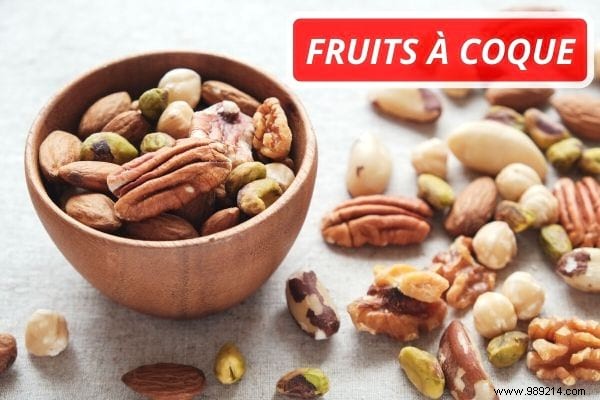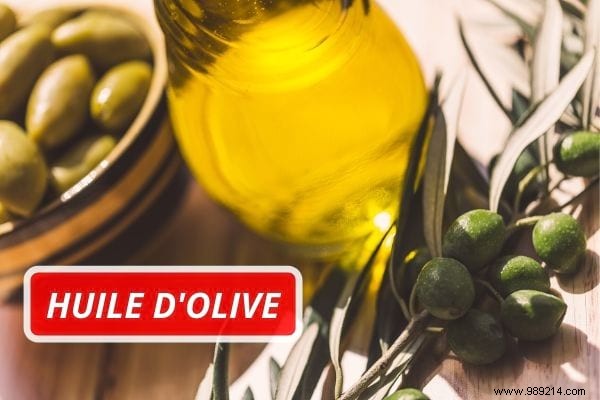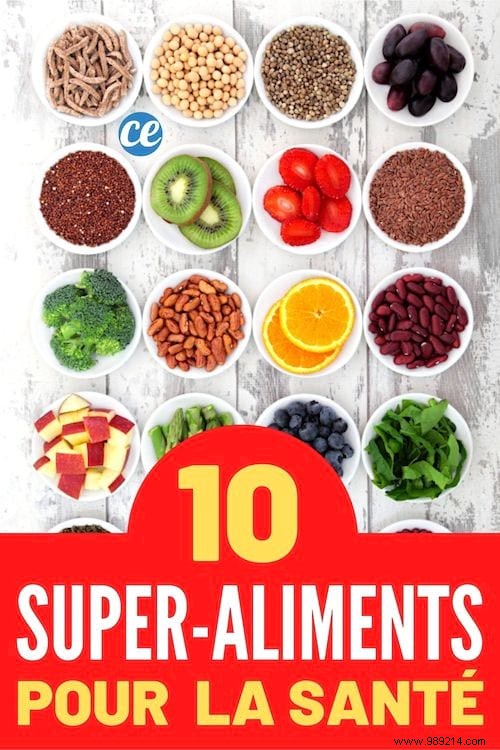
Do you know about superfoods?
These are foods considered to be particularly beneficial to health.
According to nutrition experts, these "superfoods " have a much higher nutrient density than other foods.
Scientific research has proven that these superfoods reduce the onset of high blood pressure, heart disease, diabetes and certain cancers.
So to improve your health quickly, here is the list of the 10 best superfoods to consume without moderation! Watch:

Click here to easily print this guide in PDF.

The benefits of red fruits: blackberries, strawberries, blueberries, cranberries, acai berries:red fruits are naturally sweet and rich in fiber. They are an excellent source of antioxidants, which protect the body against disease.
How to eat them? Add red fruits to yogurt, a bowl of cereal or to your smoothie recipes. You can also nibble on them plain as a snack. And when they're not in season, frozen berries are just as nutritious as fresh.
To discover: 8 Delicious Smoothie Recipes (Super Easy And Quick To Make).

The benefits of fish: fish is a good source of protein and omega-3 fatty acids, which help fight heart disease.
How to eat it? Eat fish fresh, frozen or canned. The fish richest in omega-3 fatty acids are salmon, tuna steaks, herring, trout, anchovies and sardines.
To discover: The Calendar To Pay CHEAPER Fish And Seafood According To The Season.

The benefits of leafy greens: spinach, Swiss chard, kale, green cabbage, kale, mustard greens:a leafy vegetable is a vegetable whose part consumed corresponds to the leaves of the plant. Low in calories, leafy greens are an excellent source of vitamins A and C, calcium, and also several phytochemicals, which are known to have positive health effects. Eating leafy greens is also one of the easiest ways to increase your fiber intake.
How to eat them? Regularly incorporate varieties of leafy greens into your meals. Enjoy them raw in a salad or sautéed with a drizzle of olive oil. You can also add a few leaves of collard greens or kale to your soup and casserole recipes.
To discover: The 20 Easiest Vegetables to Grow IN A POT.

The benefits of nuts: walnuts, hazelnuts, almonds, pecans... nuts are an excellent source of vegetable protein. They are also rich in monounsaturated fatty acids, lipids that reduce the risk of developing heart disease.
How to eat them? Slip a handful into your oatmeal or yogurt. And if you're looking for a healthy snack to avoid chips, try snacking on nuts. But don't forget that nuts contain a lot of calories – so limit yourself to a small handful! You can also try one of the delicious varieties of nut butter:like peanut butter, almond butter and hazelnut butter. Finally, you can slip them into your salads and sautéed vegetables. A real treat!
To discover: The 7 Scientifically Proven Benefits of Walnuts:#4 is Incredible!

The benefits of olive oil: rich in vitamin E, polyphenols and monounsaturated fatty acids, olive oil helps reduce the risk of developing heart disease.
How to eat it? Use olive oil in pasta or rice dishes to replace butter or margarine. Drizzle to sauté your vegetables and other foods, or use it in your homemade salad dressing recipes.
To discover: 7 Health Benefits of Olive Oil You Should Know.

The benefits of whole grains: Rich in soluble and insoluble fiber, whole grains are also high in many of the B vitamins, minerals and phytonutrients. In addition, studies show that whole grains help lower cholesterol levels and protect against heart disease and diabetes.
How to eat them? For breakfast, have a delicious bowl of oatmeal topped with fresh fruit. You can also replace your classic potato recipes with bulgur, quinoa, wheat grains or brown rice. And when you buy your bread at the supermarket, make sure that the first ingredient is whole wheat flour and preferably organic.
To discover: Oats:9 Incredible Benefits Everyone Should Know.

The benefits of yogurt: Rich in calcium and protein, yogurt contains live active ferments, probiotics. These "good bacteria" help protect the body against more harmful bacteria.
How to eat them? The easiest way to reap the benefits of yogurt is to eat a small jar every day. But prefer unprocessed yoghurt , because fruity or flavored yoghurts are full of sugars and preservatives. Also avoid Actimel which does nothing to your health and is overpriced. So, it is better to buy plain yogurt and add your own fresh and organic fruit. Choose yogurts that contain "live active ferments" such as Lactobacillus , L. acidophilus , L. bulgaricus and S. thermophilus . And when preparing a sauce or vinaigrette, you can also use yogurt to replace mayonnaise and crème fraîche.
To discover: Homemade Yogurts Thanks to my Pressure Cooker!

The benefits of cruciferous vegetables: the large family of cruciferous vegetables includes broccoli, Brussels sprouts, cauliflower, cabbage, kale, kohlrabi, mustard greens, turnips, radishes and also mustard greens. As vitamin-rich as some fruits, they are an excellent source of fiber and phytochemicals, including indoles, thiocyanates and nitriles, which reduce the risk of certain types of cancers.
How to eat them? To retain the delicious crunch of crucifers, sauté them in a wok. Alternatively, steam them, au gratin or puree them, adding oils and herbs to enhance their flavor. You can also take advantage of their health benefits by adding a mixture of frozen crucifers to your soups, casseroles or pastas.
To discover: How Long Should You Cook Vegetables? The Guide According To The Type Of Cooking.

The benefits of pulses: legumes (or pulses) are plants whose fruits are contained in pods. Often used as starches in cooking, they are mistakenly confused with cereals. The legume family includes peas (split, chick, dry), beans (white, red, mung, pinto), but also soybeans and lentils (brown, green, blonde or coral). Pulses are an excellent source of vegetable protein, fiber and folic acid. Studies have shown that pulses help reduce the risk of developing heart disease.
How to eat them? Pulses lend themselves easily to many recipes. So, add them to your salads, soups and casseroles. You can enjoy all their health benefits by preparing a delicious chili con carne or homemade hummus.
To discover: Don't Throw Chickpea Juice Down the Sink. It's a MAGIC ingredient.

The benefits of tomatoes: tomatoes have a high content of vitamin C and lycopene, a powerful natural antioxidant with a protective effect against prostate cancer.
How to eat them? Eat tomatoes in sauce with pasta or raw in salads. Tomato goes perfectly with other fruits, vegetables or meats. You can consume it at practically any meal of the day by adding it to your finest recipes. Be aware that the cooking method of the tomato affects the bioavailability of lycopene. Thus, it is advisable to cook your tomatoes in a healthy fat, such as olive oil.
To discover: 13 Tricks To Grow More, Bigger, Tastier Tomatoes.

There you go, you now know how to boost your health quickly with these 10 superfoods :-)
In any case, know that no single food brings together all the nutrients we need.
Not even fruits and vegetables that are called "superfoods"!
For better health, nutrition experts advise above all to have healthy eating habits .
The important thing is to focus on the healthiest foods, while diversifying your diet and limiting your calorie intake.
Thus, eating plant-based foods daily, as with the Cretan diet, is the best way to reduce the risk of chronic diseases.